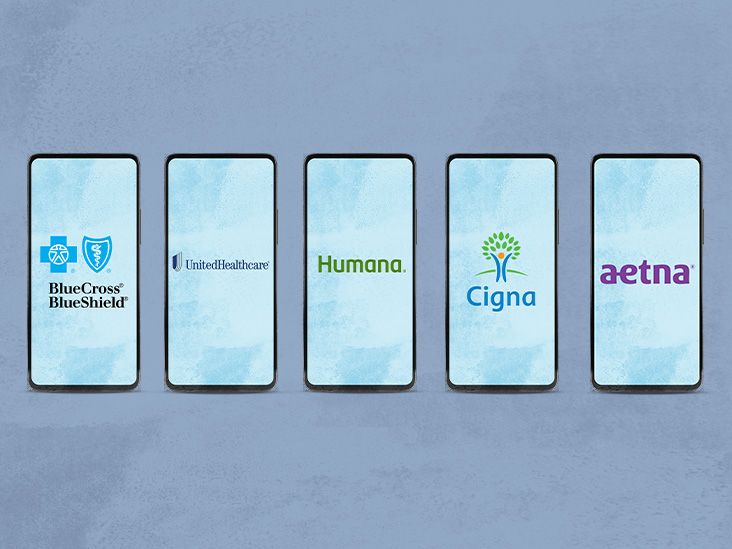Hey there. I know you're probably here because you're dealing with something really tough right now, or maybe you're just trying to plan ahead for yourself or a loved one. Let me make this as clear and kind as possible: when it comes to Medicare cremation coverage, it's a straightforward "no." But before you worry or feel overwhelmed, let's walk through this together. There are other options, and you don't have to navigate this alone.
Understanding Medicare's Coverage
First, let's back up a bit. Medicare was designed with one main job in mind: helping people get medical care when they need it most. That includes everything from doctor visits to hospital stays and even preventive services. It's amazing for all the things your body needs, but when it comes to services like cremation or other funeral expenses, it just wasn't built for that role. Think of it like having a tool belt that's perfect for fixing pipes but doesn't have a hammer it's not because the tool belt is broken, it just wasn't meant for that specific job.
Even if someone has Medicare Advantage or Medigap plans, which offer additional coverage options, these also generally don't cover cremation costs. It's important to understand what Medicare does and doesn't cover so you can prepare accordingly. Would Medicare cover hospice care? Absolutely. Would it cover the actual cremation process? Unfortunately not. But here's where I want you to take a deep breath there are several paths you can explore that might make this process easier.
Why Cremation Isn't Covered
If you're wondering why cremation isn't considered a medical expense by Medicare, it's simply because our system distinguishes between what's medically necessary and what's personally meaningful. Cremation and funerals fall into the category of personal or family expenses, rather than medical ones. The law draws that line pretty clearly, even though for many of us, these decisions carry deep emotional significance.
I like to think of it this way: Medicare steps in when your body needs healing, comfort, or specialized care. Once someone has passed away, Medicare's role shifts. It's about honoring someone's memory in the way that feels right for their family, which is where other resources can really make a difference.
The Real Cost of Cremation
Let's talk numbers for a second and I promise to keep this practical and compassionate. According to data from the National Funeral Directors Association, the average cost of cremation in 2024 is about $6,280. That's certainly a lot of money, but it's worth noting that it tends to be less expensive than traditional burial, which averages around $8,300. These costs can vary widely based on region and the services you choose, so let me break it down a bit more.
| Region | Avg Burial Cost | Avg Cremation Cost |
|---|---|---|
| New England | $8,985 | $7,023 |
| Middle Atlantic | $8,573 | $6,498 |
| South Atlantic | $8,023 | $6,103 |
| East South Central | $7,615 | $5,858 |
| West South Central | $7,912 | $5,890 |
| Mountain States | $7,390 | $5,505 |
| Pacific | $7,835 | $5,812 |
When you look at those figures, you'll notice the prices can differ quite a bit depending on where you live. For example, cremation in New England tends to cost more than in the Mountain States. That makes sense when you think about local business costs and regional economic factors. These numbers are just averages, so actual prices could be lower or higher based on the choices you make and where you are.
Finding Financial Help
So, if Medicare doesn't cover cremation, where else can you turn? I'm really glad you asked, because there are several potential sources of support that could help ease the financial burden during this already difficult time.
One place to start is the Social Security Death Benefit. This provides a one-time payment of $255 to a surviving spouse or minor child. While it won't cover everything, every little bit helps. To qualify, the person must have lived in the United States and either met income requirements for Supplemental Security Income (SSI) or been eligible for Social Security retirement or disability benefits.
Another valuable source of assistance comes from the Department of Veterans Affairs (VA). Veterans and their families may be eligible for burial benefits that include up to $978 for non-service-connected deaths and up to $1,500 for service-related deaths. In addition, eligible veterans can receive a free burial plot and headstone in national cemeteries. To qualify, the veteran must have served during wartime, been discharged under conditions other than dishonorable, and meet income eligibility requirements.
Many states and even local counties offer burial assistance programs that can provide anywhere from $200 to over $1,000 for indigent burials and cremations. The availability and amount of these funds vary widely by location, and they're often distributed on a first-come, first-served basis, so it's worth reaching out to see what might be available in your area.
| State | Type of Assistance | Max Amount |
|---|---|---|
| Florida | Emergency Burial Program | ~$1,500 |
| Texas | Indigent Funeral Program | ~$750 |
| California | County-Based Burial Aid | Varies |
Prepaid funeral plans and burial funds are another option to consider. Some seniors find it helpful to set money aside in burial trust accounts, which can hold up to $1,500 without counting against SSI resource limits. Prepaid cremation plans can also lock in today's prices and help avoid inflation in the future. Banks, funeral homes, and insurance-linked savings all offer different ways to approach this. It's worth checking with Medicaid offices, as they may recognize these funds and not count them as assets when determining eligibility.
Alternative Funding Sources
Life insurance can play a role too, especially if there's a final expense rider or death benefit included with the policy. Sometimes employer-provided life insurance will include a payout that can be used for funeral costs. In more urgent situations, personal loans or credit cards might provide a temporary solution, although I'd recommend taking a close look at the terms and interest rates before moving forward.
These days, crowdfunding platforms like GoFundMe or GiveForward have become a way for families to raise money quickly for cremation expenses. These platforms allow you to set up a page where friends, family, and even strangers can contribute to help with costs. Many include photo tributes and personal messages, which can create a beautiful opportunity for community support during a difficult time.
Debunking Common Myths
Let's clear up some misconceptions while we're on the topic. You might have heard that Medicare will eventually cover your loved one's funeral. That's simply not true, no matter which type of Medicare coverage you have. Another myth floating around is that you have to repay Medicare after someone dies. Trust me, there are no "death taxes" or repayment obligations on beneficiaries in this situation that's just not how it works.
While cremation is often cheaper than burial, it's not always a guarantee. The cost can vary depending on what additional services you choose, like urns, memorial services, or even a gravesite for the ashes. It's important to ask questions about all the potential costs so there aren't any surprises later on.
Making Smart Choices
If you're looking for the most affordable cremation option, consider something called direct cremation. This involves minimal services no embalming, no casket viewing, and no formal funeral service. It's just the basics: transportation of the body, the actual cremation, and return of the ashes. These services can cost as little as $995 in some areas, which is significantly less than full-service funerals.
This option works well for families who plan to hold their own memorial services or who simply prefer a more private way of remembering their loved one. It's about finding what feels right for your family while staying within your budget.
Final Thoughts
Knowing that Medicare doesn't cover cremation is just the beginning. It's natural to feel overwhelmed by all the financial considerations during such a difficult time, but remember that you have options. Whether it's through Social Security, veterans' benefits, state programs, life insurance, or community support, there are resources available that can ease the burden. Being informed now can help give you peace of mind later, and that's incredibly valuable.
If you're looking into this topic because you're planning ahead, good for you. Taking care of these details now can be such a relief for your loved ones later. And if you're here because you're dealing with a recent loss, be gentle with yourself. You're doing the best you can, and that's more than enough.
If you'd like help finding local assistance or affordable cremation providers near you, don't hesitate to reach out. This isn't something you have to navigate alone, and I'm here to help make this process as clear and manageable as possible for you.
FAQs
Does Medicare cover any funeral or burial expenses?
No. Medicare’s benefits are limited to medically necessary services. Funeral, burial, or cremation costs are considered personal expenses and are not covered.
What can I use to pay for cremation if Medicare won’t?
Options include VA burial benefits, Social Security death benefits, state indigent burial programs, prepaid funeral plans, burial trust accounts, life‑insurance death benefits, and community crowdfunding.
Can veterans use VA benefits to cover cremation costs?
Yes. Eligible veterans may receive up to $1,500 for non‑service‑connected deaths and up to $1,500 for service‑related deaths, plus possible burial plots and headstones.
How do prepaid funeral or cremation plans work?
You pay today for services you’ll need later, locking in current prices. Funds are often held in a trust that isn’t counted as an asset for Medicaid eligibility.
Are there state programs that help with cremation expenses?
Many states and local counties offer burial assistance programs that provide anywhere from a few hundred to over $1,500 for low‑income families. Availability varies, so contact your state’s health or social services department.
Disclaimer: This article is for informational purposes only and does not constitute medical advice. Always consult with a healthcare professional before starting any new treatment regimen.
Related Coverage
Find the best Vermont Medicare options for 2025. Compare Original Medicare and Medicare Advantage plans to make informed health coverage choices....
Medicare covers end-of-life planning services. Learn how to prepare for future healthcare decisions and ensure your wishes are respected....
Stay safe with medication safety for seniors. Get practical tips to manage prescriptions, avoid interactions, and protect your health....
Get Medicare Part D plans for 2025, compare costs, formularies, pharmacy networks, and the new out‑of‑pocket cap to save money....
Learn what to expect physically, emotionally and spiritually at end of life. Understand the biological shutdown, role of palliative care, and ways to offer compassion....
Quick ways to spot and stop Medicare scam calls, protect your personal info, and report fraud with confidence and ease....
Wondering which custodial care service is right for you or your family in 2024? Check out our top 5 recommendations, including nursing homes, assisted living, and more. Find the best fit for your loved one's needs....
Find the best Montana Medicare options for your needs. Compare plans, save money, and get the coverage you deserve in Big Sky Country....
Quickly verify Medicare eligibility online to avoid surprises. Check your coverage status in minutes with our simple guide....
Medicare fall prevention services help seniors reduce risks and maintain independence. Learn how Medicare covers wellness visits, therapy, and safety equipment....









